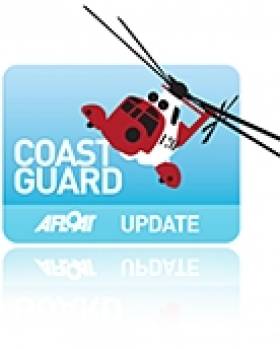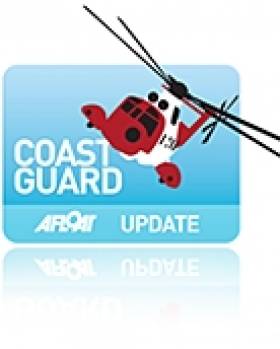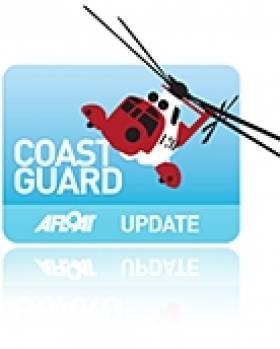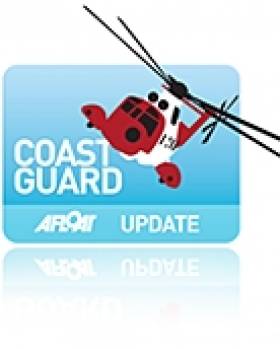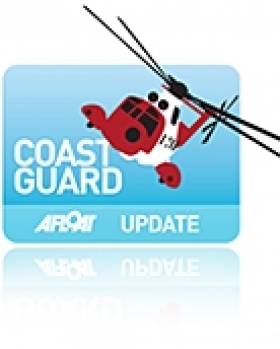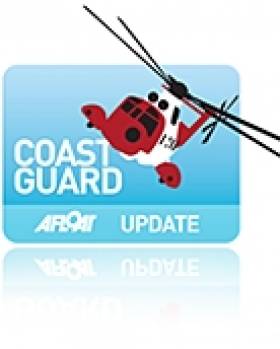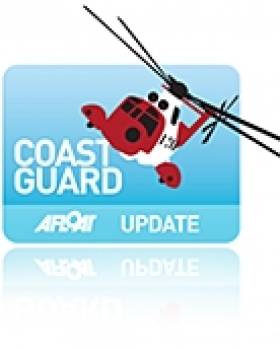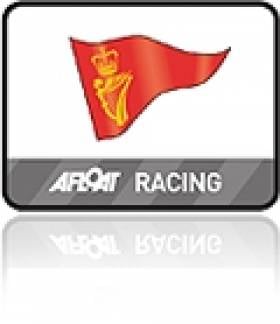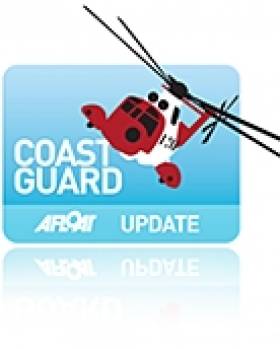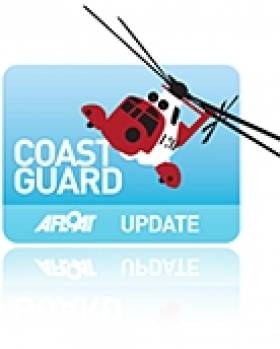Displaying items by tag: closure
NI First Minister Highlights Need for Local Knowledge Over Clyde Coastguard Closure Threat
#COASTGUARD - Northern Ireland's First Minister has highlighted the need for local knowledge in light of the threatened closure of the Clyde coastguard station in Scotland.
As previously reported by Afloat.ie, the control centre at Greenock is set to be scrapped under the UK government's plans to streamline Britain's coastguard network.
Some 31 jobs will be lost in the closure, while rescues on the River Clyde and western Scotland will in future be handled from Northern Ireland's Bangor station on Belfast Lough - which itself was saved from the chop following a review over the summer.
In a letter to MSP for West of Scotland, Stuart McMillan, First Minister Peter Robinson said that his and his government's concerns "centre on the safety of the people using our coasts and seaways, which could be jeopardised by the loss of local knowledge and experience."
McMillan welcomed his support, adding that "despite the consultation period being over, it is not too late for the UK Government listen to the growing number of voices saying that this must be reversed.
“Closing coastguard stations down including Clyde is a short-sighted and dangerous move which puts saving money over saving lives.”
Clyde Campaigners Hope for U-Turn on Coastguard Closure Proposal
Scottish campaigners have made their final pleas to save the Clyde coastguard station from closure, the Greenock Telegraph reports.
Under the UK government's plans to streamline Britain's coastguard network, the control centre at Greenock is set to be scrapped with the loss of 31 jobs, while River Clyde rescues will in future be handled from Northern Ireland.
As previously reported on Afloat.ie, Northern Ireland's only dedicated search and rescue centre on Belfast Lough was saved from the chop following a review of plans to reform the Maritime and Coastguard Agency's nationwide network.
A consultation on the propose closure concluded yesterday, and locals join staff, union leaders and politicians in hoping they can persuade the government to give Clyde a reprieve.
"Local knowledge and understanding are vital when dealing with emergency situations." said local MSP Stuart McMillan.
"To remove a committed and fully functioning coastguard service with expert local knowledge would leave a void that could not be filled by an over stretched centre in Belfast."
The Greenock Telegraph has more on the story HERE (registration required).
Bangor's Future 'A Victory for People Power'
The decision to keep open Northern Ireland's only dedicated search and rescue base is a victory for people power, says the Belfast Telegraph.
As previously reported on Afloat.ie, the station at Bangor was saved from closure following a review of plans to streamline the UK's coastguard network.
In an editorial on Friday, the paper said: "Northern Ireland really is a place apart geographically and no-one was convinced that the waters around our coastline from Lough Foyle to Strangford and the inland waterways of Lough Neagh and Lough Erne could be safely monitored by what amounted to remote control if Belfast Coastguard was closed."
The preservation of the service at Bangor is also "a victory for common sense".
The paper added: "From now on every person plucked from the sea or the loughs will utter a heartfelt thanks to those who fought to keep the service locally-based and they will also praise Transport Minister Phillip Hammond for sparing it from closure."
Bangor Coastguard Centre Saved from the Chop
Northern Ireland's only dedicated search and rescue command centre has been saved from closure following a review of plans to streamline the UK's coastguard network.
BBC News reports that UK Transport Minister Phillip Hammond told the House of Commons today that the coastguard station at Bangor would remain open and operate 24 hours a day, allaying concerns that the station would be reduced to daytime-only service.
"Had this decision gone the wrong way, it would not simply have been a blow for the staff here in Bangor, but for all of Northern Ireland," commented North Down MLA Peter Weir.
The Bangor station will be one of eight full-time centres across the UK that remain open, while the stations at Clyde, Forth, Portland and Liverpool will be closed.
BBC News has more on the story HERE.
UK Minister Grilled Over Coastguard Closures
The UK Shipping Minister has hit out at claims that Northern Ireland coastguards were barred from speaking to the Commons committee looking into plans to streamline the British coastguard network.
According to the Belfast Telegraph, Minister Mike Penning maintained he had "not gagged anybody" when questioned over his forbidding officers from a number of coastguard stations - including Bangor - from giving testimony to the transport committee.
The minister explained his decision on the basis that coastguards are civil servants and that "a civil servant's job is to support the government of the day".
He also indicated to the inquiry panel that he was working towards keeping open 10 stations instead of the eight listed in the original plans, under which Bangor would either be downgraded to a daytime station or closed outright.
The Belfast Telegraph has more on the story HERE.
Penning Says Meeting with Bangor Coastguard Staff Clears Air
UK Shipping Minister Mike Penning described his meeting with Bangor coastguard staff last week as "a breath of fresh air", BBC News reports.
Last Wednesday Penning met staff at Northern Ireland's only coastguard centre, which is threatened with closure under plans to streamline the UK's coastguard station network.
Minister Penning admitted to BBC News that Bangor was not on the original list of centres marked for closure.
"It was a decision made by myself and the secretary of state and we were honest about that," he said, adding that there was now "acceptance of the people in the frontline that there has to be change and there has to be modernisation".
The minister said no date had been set for a final decision on which stations would be closed.
Meanwhile, the Community Telegraph reports on confusion among the public following the meeting with Maritime and Coastguard Agency (MCA) officials in Bangor on 3 March.
Ian Graham of the Public and Commercial Services (PCS) union, which represents coastguards, said: “They didn’t really answer any of the questions from the public adequately."
He added that statistics they used in a slideshow to illustrate rescue incident start time were "misleading" as "a lot of rescues can last for hours".
Cameron Dodges Issue of Bangor Closure
British Prime Minister has dismissed concerns over the potential loss of Northern Ireland's Coastguard centre.
The Belfast Telegraph reports that when questioned on the future of the Bangor control centre by DUP MP Jim Shannon, David Cameron replied that he understood "the need for good air sea rescue".
“I think what matters is not necessarily who is carrying it out, but are they fully qualified, is it a good service and is it value for money?” he added.
As previously reported on Afloat.ie, the Bangor Coastguard control centre is facing closure under reforms to the service across the UK announced by Shipping Minister Mike Penning.
Downturn Hits Dining at Royal Cork Yacht Club
The Royal Cork Yacht Club has announced that its dining facilities will close until late spring at the earliest due to a slump in business over the last year, the Irish Examiner reports.
The club recently put one staff member on temporary lay-off and made another redundant following a "significant downturn in all club dining support during 2010", the newspaper reports.
But club admiral Paddy McGlade is hopeful that the restaurant will reopen in April, noting that is it normal practice for the restaurant to close during seasonally slack periods.
He added that it would be "inappropriate" for the club to use its cash reserves to keep the restaurant open in the present climate.
The downturn is affecting a lot of sailing clubs who must wait some months yet before the main 2011 sailing season starts.
The Crosshaven-based club is the home of ther biennial Cork Week, one of the biggest events on the Irish sailing calendar, scheduled to return in July 2012.
NI Coastguard Centre Faces Scale Back, Possible Closure
The UK's shipping minister has announced proposals that would see a reduction in operational hours or even the closure of Northern Ireland's coastguard command centre.
Earlier this week news emerged that the rescue command centre at Bangor was under threat by public spending cuts.
Now the News Letter reports that Minister Mike Penning's proposals would see only three 24-hour coastguard stations across the UK - in Aberdeen, Southampton and Dover - with five sub-centres operating in daytime hours, one being based either at Bangor or Liverpool.
Campaigners have voiced their opposition to any reduction in Northern Ireland's local coastguard service. North Down independent MP Lady Sylvia Hermon told the News Letter that it was vital a well trained and equipped service was retained in the area.
NI Coastguard Centre May Face Closure
Public spending cuts in the UK could see the closure of Northern Ireland's only coastguard rescue command centre, the News Letter reports.
The coalition government is expected to announce phasing out of a number of the UK's 19 coastguard centres - and a member of the NI Coastguard said that "Bangor is certainly under threat".
The command centre in Bangor oversees coastguard operations along the entire coastline from Lough Foyle to Carlingford Lough, and has handled more than 700 incidents so far in 2010.
The staff member added: "The coastguard here in Northern Ireland is already over-stretched, and we firmly believe that the closure of our centre in Bangor will have a serious and detrimental effect on our ability to respond to emergencies here."
Margaret Elliot - the mother of teenage drowning victim James Elliot, who died in the flood-swollen River Bush in Co Antrim last year – has described the proposed cutbacks as "absolutely disgusting".
"We simply cannot allow this essential service to be threatened in any way. Saving money should never be a factor when it comes to saving lives," she said.
The News Letter has more on the story HERE.


























